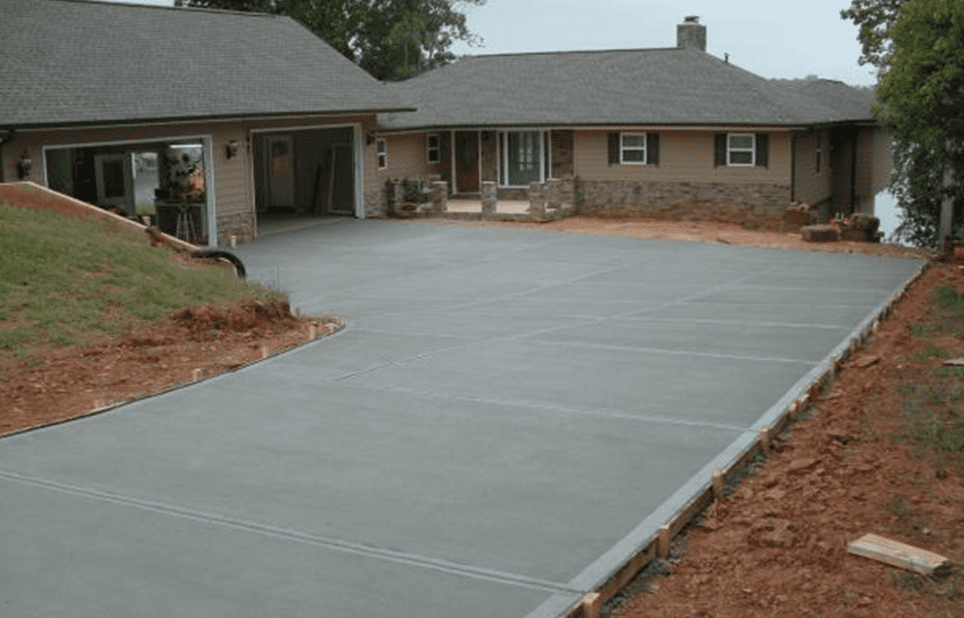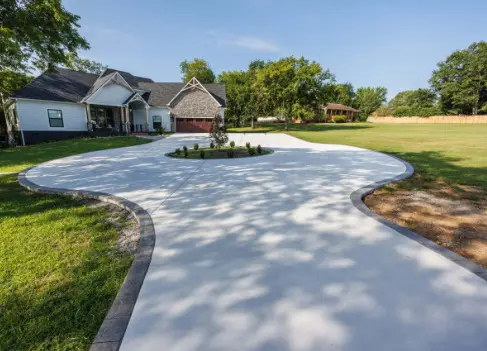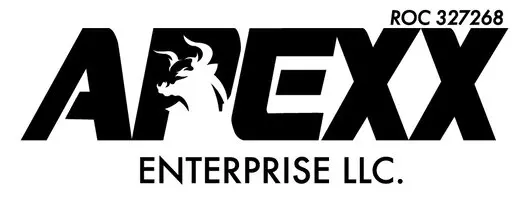How Durable Is a Concrete Driveway? Key Insights for Longevity
Call us at (520) 301-0316

When it comes to creating a long-lasting driveway, many homeowners wonder, how durable is a concrete driveway? Concrete driveways are often chosen for their strength, low maintenance, and style. While concrete can cost more initially than some other materials, it offers benefits like durability and versatility that make it a smart investment. With quality materials, skilled installation, and proper maintenance, concrete driveways can provide decades of reliable service.
Let’s explore what affects the durability of concrete driveways, how to care for them, and why they make a lasting, attractive choice for your property.
How Durable Is a Concrete Driveway? Factors That Impact Longevity
Climate Effects on Concrete Driveway Durability
Climate plays a big role in how durable a concrete driveway is. Areas with extreme weather changes, like hot summers or freezing winters, can impact concrete driveways in different ways.
1. Freeze-Thaw Cycles: In colder climates, freeze-thaw cycles can lead to cracks. When water seeps into small cracks in the concrete and freezes, it expands, putting pressure on the surface. This can weaken the concrete and lead to more visible cracks.
2. High Temperatures and UV Exposure: In hotter areas, constant sun exposure can cause the surface of a concrete driveway to fade. UV rays may weaken the outer layer, making it more likely to chip over time. High temperatures can also cause the surface to expand slightly, leading to tiny cracks.
By understanding these climate factors, you can take steps to protect your concrete driveway and help it last longer.
Importance of Quality Materials and Installation
The quality of materials and the skill of the contractor are very important in how durable a concrete driveway will be over time. High-quality concrete and professional installation techniques lead to a stronger, longer-lasting driveway.
- High-Quality Concrete Mixes: Choosing the right concrete mix improves durability. Opting for mixes with the right strength and additives, like fiber reinforcement, can help protect the driveway from cracking and wear.
- Professional Installation: A skilled contractor ensures the driveway is poured evenly and with the right thickness. Proper curing is essential, as rushing the process can lead to surface damage and reduce longevity.
Working with a reliable company like Apexx Enterprise LLC ensures your driveway will stand up to the elements and traffic for years.
Traffic Load and Weight Tolerance
Concrete driveways are known for their strength, but the type and amount of traffic they handle can affect their lifespan.
- Light Traffic: For standard residential use, like passenger cars, a concrete driveway holds up well with little wear.
- Heavy Traffic: If heavy trucks or recreational vehicles frequently use the driveway, it’s essential to make sure the driveway has the right thickness and reinforcement. Residential concrete typically withstands standard vehicles but may suffer under heavy machinery without added reinforcement.
Considering the types of vehicles that will use your driveway helps ensure it lasts as long as possible.
Key Maintenance Practices to Prolong Your Concrete Driveway’s Life
Cleaning and Sealing Regularly
Routine cleaning and sealing are essential to keep *how durable a concrete driveway* is. Sealing is especially important because it creates a protective layer against moisture, oil, and chemicals.
- Sealants: A quality sealant stops moisture from seeping in and protects the concrete from cracks and stains. Reapply every few years for the best protection.
- Regular Cleaning: Clean the driveway surface regularly to prevent dirt buildup and staining. Use mild soap and water or a pressure washer to keep grime from weakening the concrete.
Proper cleaning and sealing make the driveway easier to maintain and help prevent early damage.
Repairing Cracks and Damage Promptly
Addressing cracks as soon as they appear helps prolong the life of your driveway. Small cracks left unattended can spread, leading to bigger, costlier repairs.
- Quick Repairs: For minor cracks, a concrete filler can prevent further damage. If cracking happens often, consult a contractor to check for deeper issues.
- Routine Inspections: Regularly inspect the driveway, especially after harsh winters or heavy rain. Fixing problems early keeps your driveway looking and performing its best.
Winter Maintenance Tips
Winter maintenance is crucial in areas prone to freezing temperatures and snowfall. Chemicals and salts used to melt ice can damage the driveway surface.
- Limit Salt Use: Instead of de-icing salts, use sand for traction. Salt can worsen freeze-thaw damage, weakening the driveway.
- Shovel Snow Quickly: Removing snow promptly keeps it from compacting and allowing moisture to seep into the concrete. Proper winter care helps prevent cracks from freezing and thawing cycles.
Call us at (520) 301-0316

Benefits of a Durable Concrete Driveway
Cost-Effectiveness Over Time
Though concrete driveways may cost more initially, they save money in the long run. Their durability means lower maintenance and replacement costs, making them a smart choice for homeowners.
- Reduced Repair Frequency: Concrete driveways require fewer repairs over their lifespan, avoiding regular upkeep costs associated with other materials like asphalt.
- Long-Term Savings: Concrete driveways can last up to 30-40 years with proper maintenance, which saves you from frequent replacements.
Enhanced Aesthetic Appeal and Property Value
A concrete driveway not only serves a functional purpose but also enhances the look and value of your property.
- Customizable Designs: Concrete allows for a variety of finishes, colors, and patterns. Stamped or stained concrete options let homeowners create unique looks that match their home’s style.
- Increased Curb Appeal: A well-maintained concrete driveway improves curb appeal, which can positively impact property value.
Concrete driveways add beauty and long-term value, making them a wise investment for homeowners who want to improve their property.
How Long Can You Expect a Concrete Driveway to Last?
Typical Lifespan of a Concrete Driveway
When asking how durable is a concrete driveway, consider its average lifespan. With proper installation and care, a concrete driveway typically lasts between 30 to 50 years.
- Factors Affecting Longevity: Quality materials, the right thickness, and a stable base all contribute to its lifespan. Regular maintenance like cleaning and sealing also helps it last longer.
- Expected Durability: For standard residential use, concrete driveways offer one of the longest lifespans compared to other driveway materials.
Comparing Concrete with Other Driveway Materials
Concrete has advantages over other materials, such as asphalt, gravel, and pavers, especially in durability and maintenance.
- Concrete vs. Asphalt: While asphalt is cheaper initially, it needs regular sealing and has a shorter lifespan (15-20 years). Concrete lasts longer with less maintenance.
- Concrete vs. Gravel and Pavers: Gravel needs frequent refilling, while pavers can shift and need re-leveling. Concrete remains stable and needs less upkeep.
For those looking for a durable, low-maintenance option, concrete is an excellent choice.
Tips for Choosing the Right Concrete Driveway for Durability
Selecting the Right Concrete Mix
The type of concrete mix used is crucial to the driveway’s strength and durability.
- Standard vs. Reinforced Concrete: Standard concrete is great for most residential needs, while fiber-reinforced concrete adds extra strength for heavy use.
- Additives: Additives like air entrainment help concrete withstand freezing temperatures, making it suitable for colder climates.
Choosing the right mix ensures your driveway can handle the demands of your location.
Design and Structural Considerations for Longevity
Proper design and structure improve a driveway’s durability. From choosing the right thickness to adding edging, every detail matters.
- Thickness: For standard vehicles, a driveway should be at least 4 inches thick. For heavier vehicles, 5-6 inches is ideal.
- Edging and Drainage: Edging helps prevent cracks at the driveway’s edges, while good drainage prevents water buildup, reducing the risk of freeze-thaw damage.
Proper design choices help maintain your driveway’s integrity and appearance.
Conclusion
So, how durable is a concrete driveway? With quality materials, skilled installation, and regular maintenance, concrete driveways can last for decades. They offer strength, design flexibility, and low upkeep, making them a smart choice. Homeowners looking for a durable, attractive driveway should consider concrete for long-term value and minimal repair needs.
Ready to invest in a durable concrete driveway? Apexx Enterprise LLC is here to help. Contact us today for a consultation and see how a professionally installed concrete driveway can enhance your property’s durability and curb appeal!
